Duty calls more veterans back to serve — in Congress
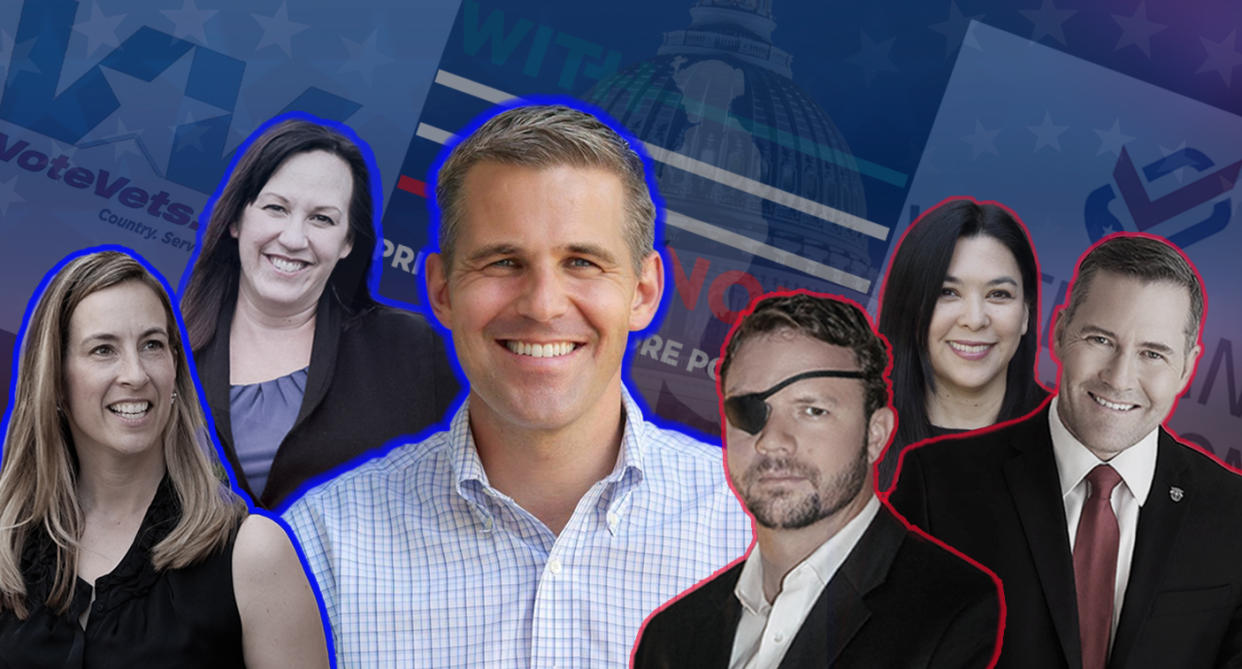
Twenty years ago, Josh Welle was nominated to the U.S. Naval Academy in Annapolis by Republican Rep. Chris Smith. Welle was fresh out of high school and Smith had been his congressional representative for his whole life. Welle served in the Navy for 12 years, including a tour in Afghanistan and missions in the Persian Gulf and East Asia, and founded a software company with two friends, also veterans. Now he says he can best serve the country in the House of Representatives by running against the same politician who nominated him to Naval Academy back in the ’90s.
“Veterans are well-poised to unite, because our entire education is grounded in mission, purpose, getting the job done,” Welle said. “Congress is broken and career politicians are part of the problem. You need to send in new people to fix it.”
Smith, who is 65, has been in office since 1981 and is running for his 20th term.
Welle is part of a large cohort of military veterans hoping to continue their service to the country as members of Congress. Veterans Campaign, a nonprofit focused on preparing veterans for civic leadership, is now tracking 94 non-incumbent military veterans — 40 Democrats, 53 Republicans and one independent — who have won major party primaries in the 2018 elections for the House of Representatives. There are now 61 Republican veterans and 19 Democratic veterans in the House of Representatives.
The military is viewed as predominantly conservative, but there have been upticks in the number of Democratic veterans running for Congress since 9/11.
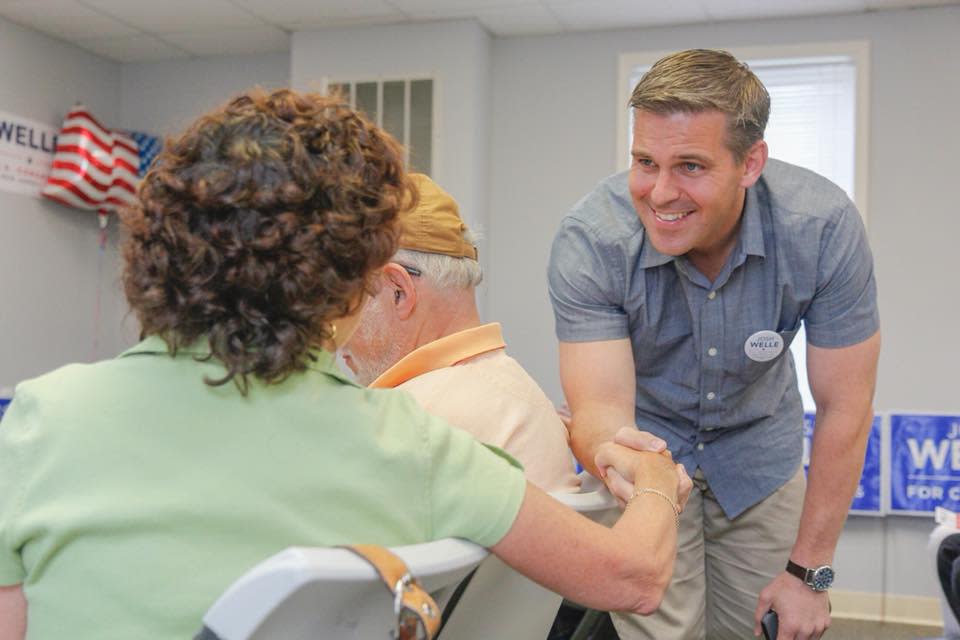
Seth Lynn, the executive director of Veterans Campaign and a retired Marine Corps officer, said there’s been a large drop the number of veteran representatives over the last half-century, and it’s now near the all-time low it hit about 100 years ago as the Civil War generation retired or died.
“The Vietnam generation was the one generation where veterans have not been more likely to serve in office than their peers,” Lynn told Yahoo News. “Even though the number of vets is still declining in the population, we’re starting to see the end of the decline and possibly an uptick.”
According to the Pew Research Center, veterans made up at least 70 percent of both legislative chambers between 1965 and 1975. This peaked at 75 percent for the House in 1967 and 81 percent for the Senate in 1975. Nowadays, only about 20 percent of either chamber has military experience.
Rep. Phil Roe, R-Tenn., the chairman of the House Veterans’ Affairs Committee, said the way veterans were treated when he returned from Vietnam was shameful and that he will carry that with him for the rest of his life.
“Desert Shield, Desert Storm began to change that attitude, and after 9/11 the public’s perspective [had changed],” he said. “At the end of Vietnam, they told us not to even travel in our uniforms. It was like we caused the Vietnam War. I was in the 2nd Infantry Division. That was way above my pay grade, who made those decisions. Those were politicians who made those decisions.”
“I think veterans now have a place that they always should have had, which is one of honor in the country, and that’s why they’re being recruited. It’s a very positive thing to be a veteran, and people respect the work they’ve done,” Roe added.
Daniel Green, a reserve officer with the U.S. Navy who served in Iraq and Afghanistan, helped to create a joint-fundraising committee, the War Veterans Fund, which assists Republican veterans from the wars in Iraq and Afghanistan. They look for five or six candidates with credible campaigns and different backgrounds that will resonate with different donors and voters, he said.
The War Veterans Fund, which is backing Dan Crenshaw in Texas and Mike Waltz in Florida, has held three fundraisers, and the last for this election cycle will be in Vero Beach, Fla.
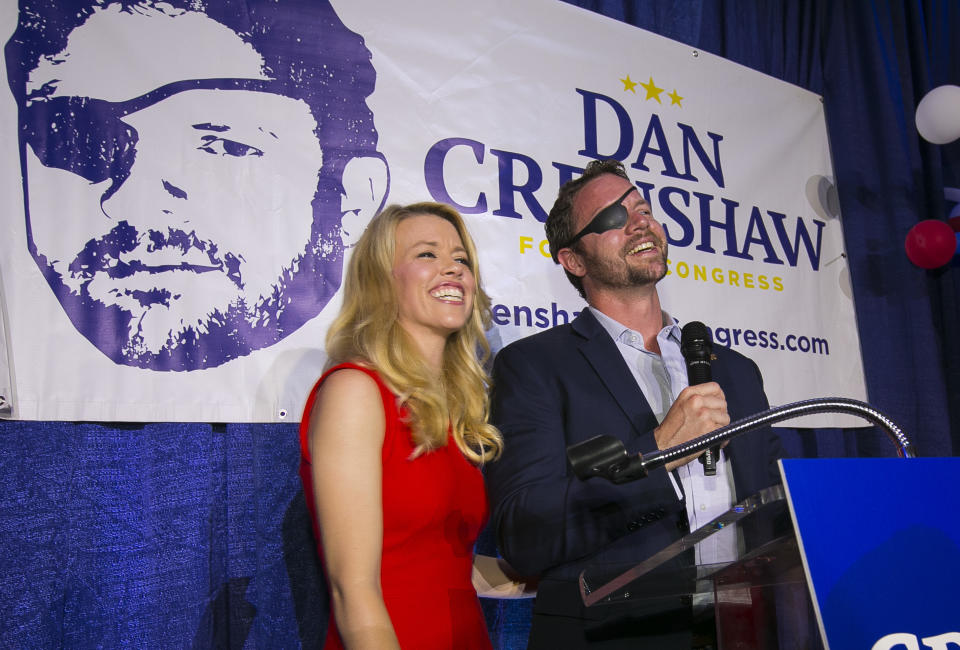
“Any new candidate’s greatest problem, even if they’ve never served, is raising money. Along with that is name recognition and organization. That’s the spot where the veteran candidate needs the most assistance,” Green told Yahoo News. “We figure once they get the nomination, the party will rally around him or her.”
He hopes the successful candidates will help mentor new candidates in 2020, and be even more powerful in fundraising efforts.
“I think there’s a great hunger out there for a new leadership model in politics and that’s the veteran leader. We feel veterans bring a lot of things that are sometimes present in politics but are seemingly lacking these days in many different quarters,” Green said. “We come from a community that emphasizes working like a team.”
Rep. Seth Moulton, D-Mass., is leading similar efforts to help veteran candidates on the other side of the aisle. Democratic candidates like Mikie Sherrill in New Jersey and Mary Jennings “MJ” Hegar in Texas have received a lot of attention in the national press and pose serious challenges to long-held Republican seats.
An organization called With Honor is helping veterans from either party who pledge to value principles over politics in a way that fosters a more effective and less polarized government. Jeff Bezos, the founder of Amazon, recently donated $10 million to With Honor — his largest political donation to date.
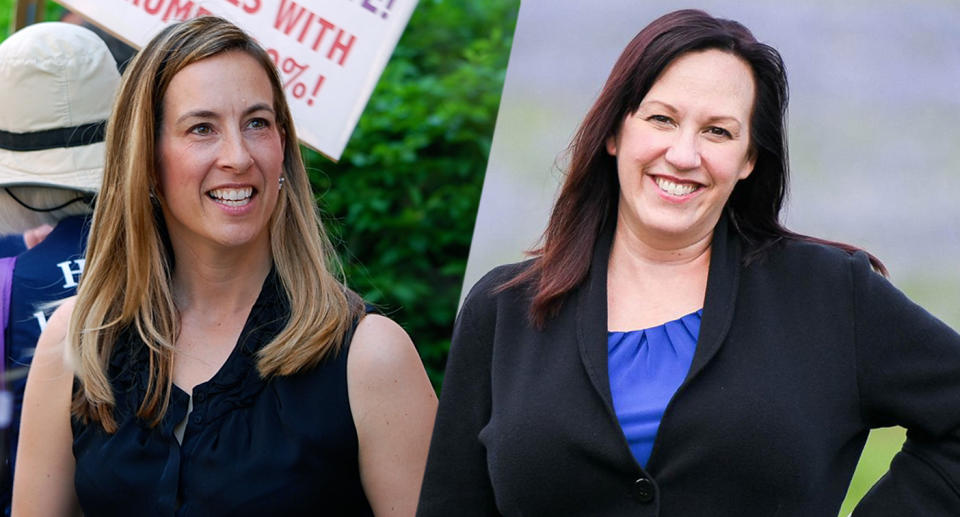
Ellen Zeng, the political director of With Honor, said they are keeping track of all the veterans who have declared a run for Congress and have found more than 400. (The 98 figure above refers only to candidates who won their primaries.) She said they face obstacles, including the fact that they are likely not as wealthy as the civilians they’re running against, and might not have been living in their districts for very long while serving elsewhere.
“We’re excited that there are so many veterans in the general election, and a lot of them are in very competitive races where there’s a good shot they will be elected,” Zeng told Yahoo News.
While the Veterans Campaign recruits and trains candidates, With Honor is primarily a super-PAC. She said every candidate With Honor endorses must agree to work with colleagues across the aisle — in addition to serving with character and principle.
“They have to meet with someone once a month from a different party, sponsor one major piece of legislation,” Zeng said. “We’re really trying to get at the disfunction and tribalism that has taken over our politics.”
Jon Soltz, a veteran of the Iraq War, is chairman and cofounder of VoteVets, a nonprofit dedicated to electing progressive veterans to Congress. He said this cycle is the first since 2008 where there’s a real opportunity for Democratic veterans to lead the way in picking up Republican seats.
“There’s going to be a lot less veterans in Congress in the future than in the past,” Soltz told Yahoo News. “There’s nothing I can do or anybody can do to prevent that. That’s solely because there’s no draft.”
In the past two cycles, he said, Democrats had no opportunities on the map to pick up seats, and that every race where VoteVets was critical were for safely Democratic seats. He cited the success of Hawaii Rep. Tulsi Gabbard, Maryland Rep. Anthony Brown, California Rep. Ted Lieu, Arizona Rep. Ruben Gallego and Illinois Sen. Tammy Duckworth, a former Army helicopter pilot who lost both her legs in combat.
“These veterans give Democrats the opportunity to take back the House. That’s the only thing that’s different,” Soltz said. “In 2010, Republicans had the opportunity.”
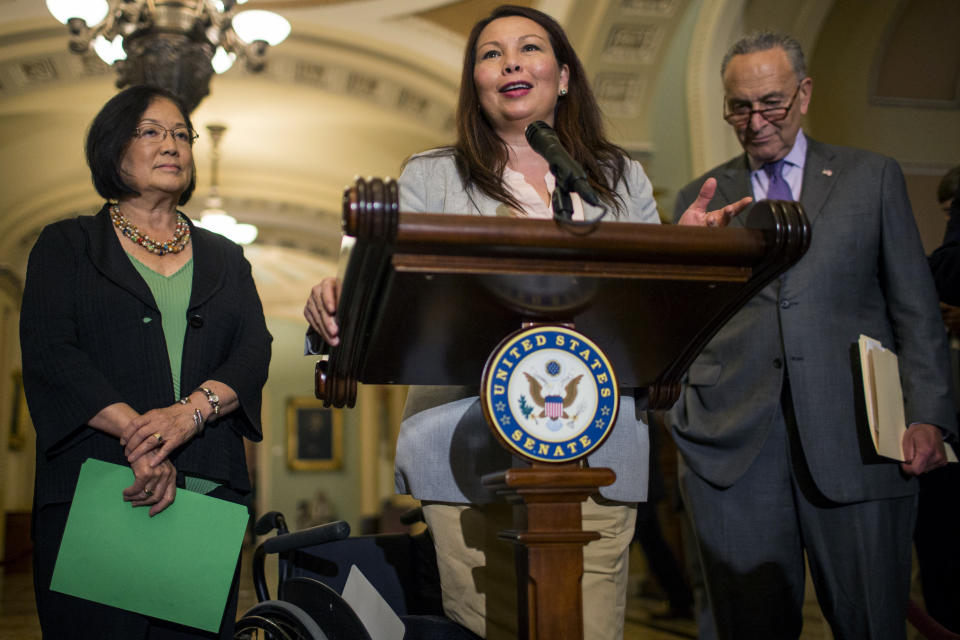
Patrick Murray, the director of the Monmouth University Polling Institute, told Yahoo News that Smith’s district, which stretches across the center of the state, is the only Republican-held seat in the Garden State that’s “not completely in play” for the Democrats. “But if a tsunami hits, that race could end up being a lot closer,” Murray said, referring to the possibility of the so-called blue wave.
No Democrat has been able to beat Smith since he was first elected to Congress in 1980. The Cook Political Report lists NJ-04 as the only solidly Republican district in this year’s midterms. But Welle pointed out that the Democrats have never run a veteran against Smith. On Sept. 10, Welle announced that he had raised more than $1 million in contributions for the campaign cycle. He told Yahoo News he’s running because the values he was taught at the Naval Academy and fought to protect overseas are now under attack by forces of division back home.
“[The Naval Academy] taught me that a life of service is a life of purpose, and I learned very early that teams and selfless sacrifice are the essence of a really good life. When it’s all said and done and you’re 85 years old at the barber shop telling stories with your buddies, if you served your community, country and gave back, you will feel full and feel you led a life of character,” Welle said. “I have a country over party message because I don’t know any other way to serve.”
Said Roe: “What being a veteran does is gives you a very different view. When you’ve been in a combat situation, a deployed situation, you’ve been away from your family, you just look at things differently. It gives you a different set of lenses. That’s what a veteran has.”
_____
Read more from Yahoo News:


